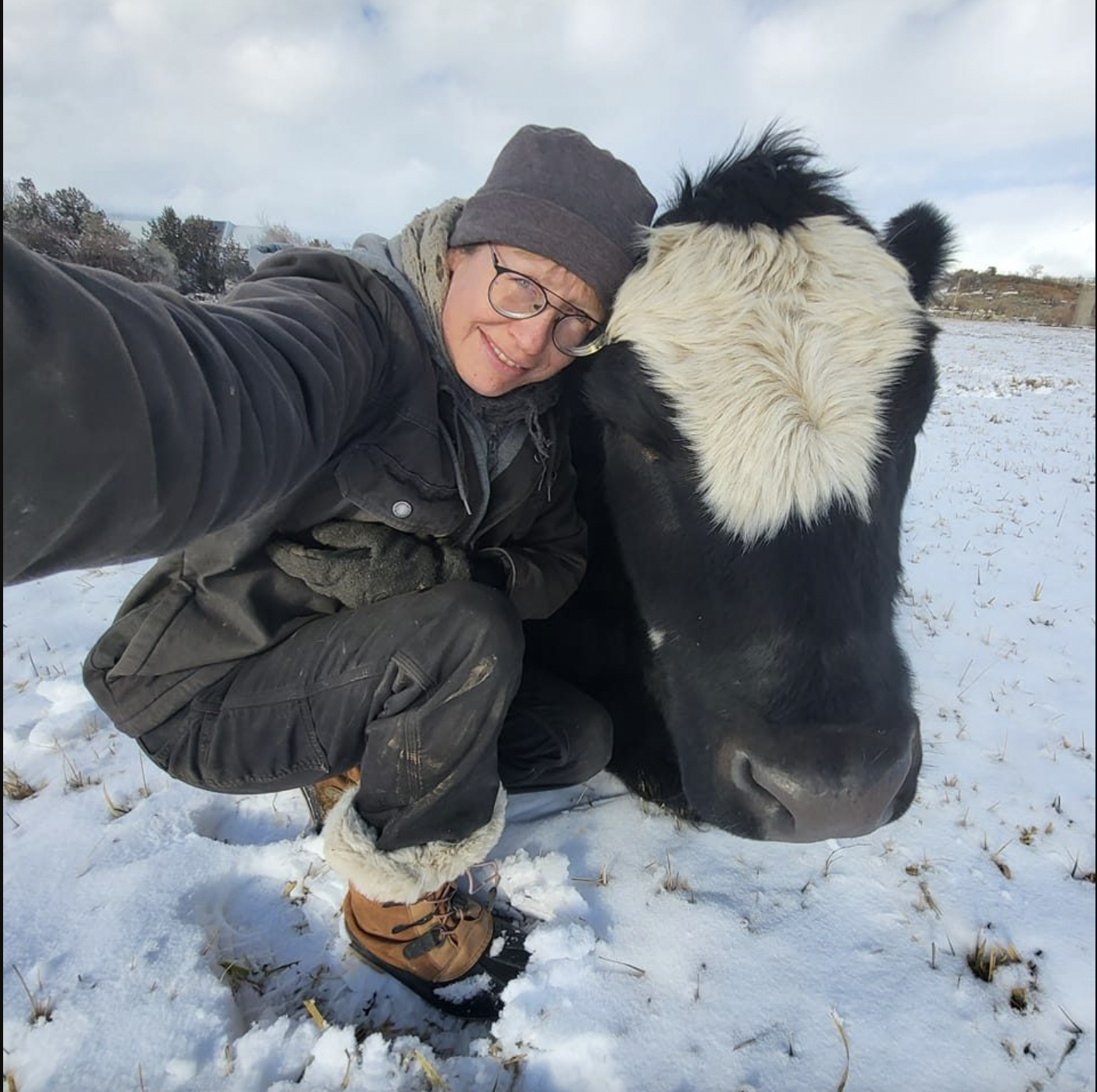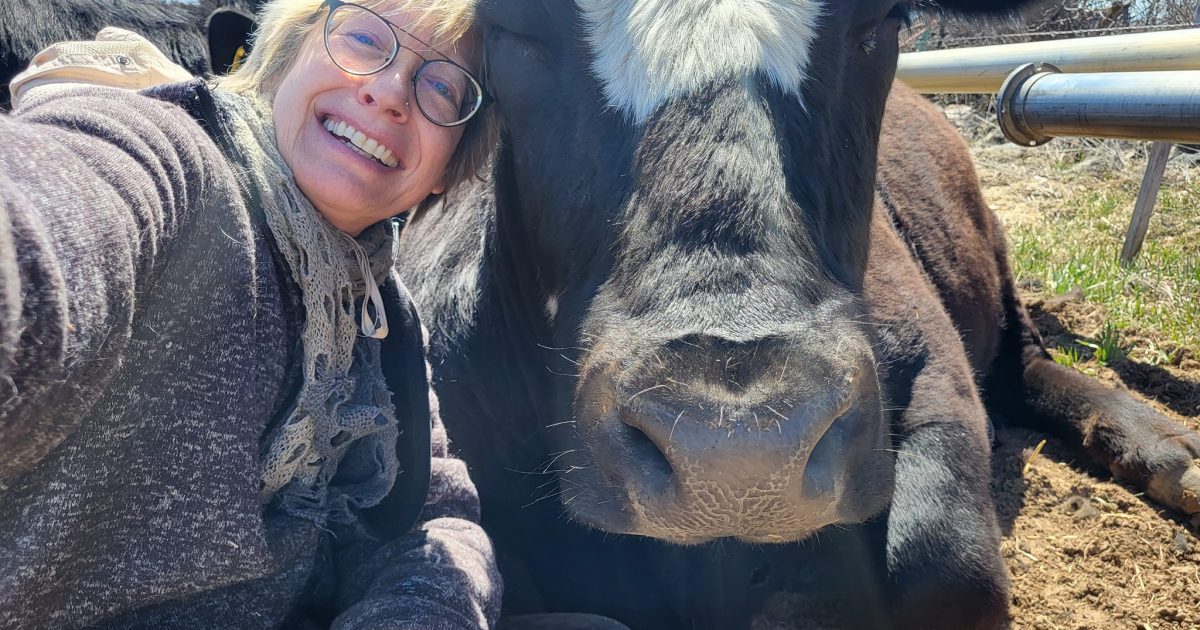Learning About Inflammatory Breast Cancer
- Rene Janiece is currently battling inflammatory breast cancer. It was a little calf that inspired her to keep fighting after her diagnosis.
- She says it’s important to give your heart to something when life gets difficult.
- Inflammatory breast cancer, or IBC, is a rare and aggressive type of breast cancer that tends to occur in younger women under 40 years of age.
- Unlike your typical cases of breast cancer, IBC often doesn’t cause a breast lump and might not show up on a mammogram. This makes it harder to diagnose.
- IBC signs and symptoms often develop quickly (within 3-6 months). Possible symptoms can include: swelling (edema) of the skin of the breast, redness involving more than one-third of the breast, pitting or thickening of the skin, and more.
Shortly after she was diagnosed with inflammatory breast cancer in 2019, Janiece decided to take care of Remy a small, local calf that was having trouble walking.
Read More
“I stayed here and I would go down two or three times a day and sit with this little calf,” she said. “I would work his legs, I’d do stretches and try to keep him moving and I would sing to him and he would lay down and put his head on my knees.”
Pet Therapy Can Really Help During Cancer Treatment: "It Takes Me Out of My World"
Over time, Remy got stronger. He grew accustomed to her visits with the small Colorado town’s “cow whisperer,” and, eventually, he was able to walk.
Janiece, too, focused on her recovery, but her cancer eventually returned and treatment resumed. Still, she never stopped visiting her favorite cow.
“I’d have two hours of recoup, you know, we’d go and I’d hike and I’d find him and we’d sit. And when I got home, that was it,” she said.
Heartwarming Pet Therapy Stories
- 8-Year-Old Cancer Survivor Trained Dog Best Friend in Treatment. Now They’re Competing in a Famous Dog Show Together.
- Special Friend, Rescue Kitten “Bingo” Helps 14-Month Old Friend As He Fights Leukemia
- Longhorn Cattle as Pet Therapy– Amazing Cowboy Who Lost Leg To Bone Cancer Is Back In The Saddle — Soulmate is Beloved Cow “Blizzard”
RELATED: What are the Treatment Options for Late-Stage Breast Cancer?
Today, she knows full well her cancer might limit her time on this earth. But she’s determined to make sure Remy and the other cows she takes care of are never sold for meat.
“My goal is, you know, for them never to become somebody dinner, they’re more than that,” she said.
Carrying on might not be easy, but Janiece has something to keep her going.
Her message is simple: Find a positive way to spend your energy when facing life’s difficulties.
“Is it artwork? Is it music? Is it a person? Is it a cow?” she said. “And I don’t know that it matters so much. What matters is picking something or allowing something to find you and giving your heart to it.”
What Is Inflammatory Breast Cancer (IBC)?
Inflammatory breast cancer, or IBC, is a rare and aggressive type of breast cancer that tends to occur in younger women under 40 years of age.
The American Cancer Society says it only accounts for 1 to 5 percent of all breast cancers. Unlike your typical cases of breast cancer, IBC often doesn’t cause a breast lump and might not show up on a mammogram. This makes it harder to diagnose.
Aggressive Breast Cancer in Young Women
IBC causes a number of signs and symptoms, most of which develop quickly (within 3-6 months).
This type of breast cancer gets its name because it causes symptoms of breast inflammation when the cancer cells block lymph vessels in the skin. Below are signs and symptoms to look out for:
- Swelling (edema) of the skin of the breast
- Redness involving more than one-third of the breast
- Pitting or thickening of the skin of the breast so that it may look and feel like an orange peel
- A retracted or inverted nipple
- One breast looking larger than the other because of swelling
- One breast feeling warmer and heavier than the other
- A breast that may be tender, painful or itchy
- Swelling of the lymph nodes under the arms or near the collarbone
RELATED: You Should Be Aware of These Signs of Breast Cancer
These symptoms are not exclusive to IBC, but you should always see a doctor promptly if any of them develop since this type of breast cancer grows and spreads quickly.
Stage Three Breast Cancer What Is It?
All IBCs start as stage three because they involve the skin. But if the cancer has spread outside the breast to distant areas, it is considered stage four.
According to the American Cancer Society, stage three treatment usually starts with chemotherapy to try to shrink the tumor, followed by surgery.
Radiation and other treatments like chemotherapy or targeted drug therapy come after surgery. When IBC is at stage four, it may be treated with chemotherapy, hormone therapy and/or targeted drugs.
Learn more about SurvivorNet's rigorous medical review process.

